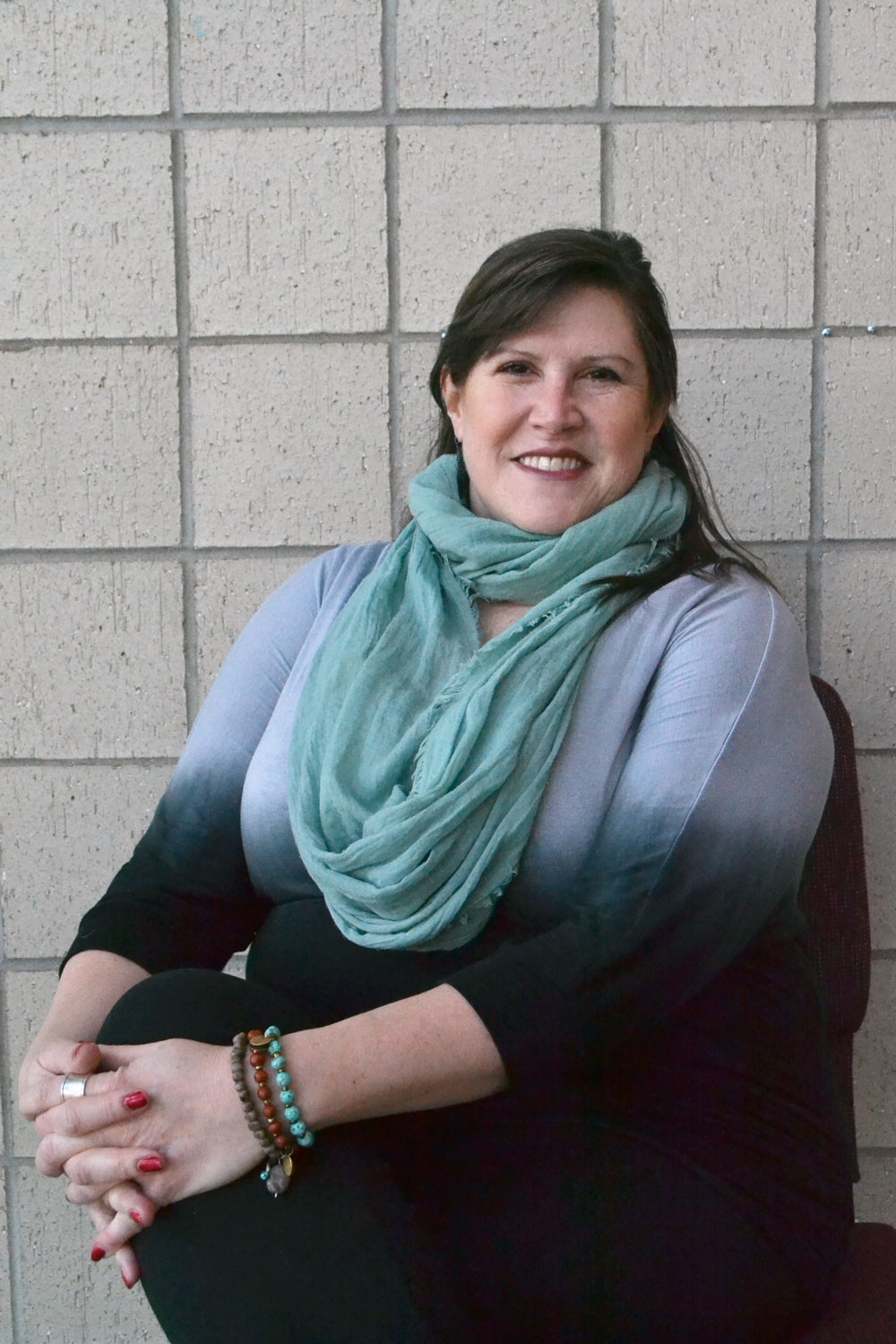The Spectrum Theater, located on Fountain Street in Grand Rapids Community College’s campus, houses four theater troupes and is always bustling with activity. Managing all that activity is Michelle Urbane, theater manager. On top of managing the box office, Urbane directs and performs in shows and can always be seen running from one place to the next, always with a big smile on her face.
Urbane started at the theater in 1997 as office manager and then later moved on to theater manager, where she oversees the box office and manages the student troupe’s shows, among many other duties.
Revue talked with Urbane about her experience in the position, how she got there and what role theater plays in her life.
How did you get into directing?
Fred Sebulske, he’s the founding father of Actors’ Theatre and was also the head of the theater program at the time. … He first came to me after I had been in a couple of productions with him onstage and I had stage managed for him. He asked if I wanted to direct a locally-written piece called Why Don’t I Fit In This High Chair Anymore?
What did you say?
I said, 'No, I can’t. I don’t know, I can’t manage all that. I’m not ready to see the big picture — I’m only ready to hone in on one character, not help develop the whole cast.' And he said, 'Well, just think about it.' … And so I did it.
What do you like most about everything you do in this building?
What I love most is the collaboration and the people I work with. Not only do I get to work with great people in the theater that also are staff at GRCC but I get to serve on a couple of teams at the college. … Sitting on the diversity team has been so special to me, because I’ve gotten the chance to meet really great people.
You’ve said that skills learned through theater can be applied to daily life. Why is theater an important skill?
Connections. I think this is really important with where we’re headed as a society, because we’re inundated with social media and everything’s at our fingertips and that sense of belonging can sometimes take a back seat. We might get that false sense through our Facebook posts. And I know the college as a whole is really focusing on: How do we make sure every student has that sense of belonging?
What is important to remember about actors, now that you’re a director?
Remembering that stress. When you’re a director, you’re working with the overall story, the overall arc of the play. And you absolutely help the arc of each of the characters and guide them. It’s a totally different stress from coming up with your physical characteristics.
How so?
Those nerves as an actor, before those lights go up, when you have to go out for different scenes, is really something. Everything you feel — that adrenaline, my heart races, I feel a little flushed — as a director, it’s so important to remember those feelings. Sometimes in a rehearsal, if the actors are feeling nervous. there might be a block that goes up so they don’t really remember their lines and they might not be able to connect with the emotions at that point.
Tell me about your side business. What is it and what’s your mission?
It’s called One World Diversity and it’s using theater and open, honest discussions and sharing personal stories that have affected your life. We write and produce our own scenes and then we debrief those scenes.
Can you give an example?
We have one scene where Sammy and I are in the same room talking and we’re interviewing for the same job and it’s a management job, and he’s saying, ‘You’re going to go for this manager job? You don’t strike me as a manager.’ He starts being sexist, sometimes overtly, but there are a couple things that he says and does where we see these micro-aggressions come out.
Where do the discussions come in?
We do this scene and then we ask the audience what was wrong there. How could she have led this conversation in a more positive way? Could she have maybe gotten him to change his beliefs? And we’ll touch on sexism, heterosexism, racism, and then talk to the audience about: How did that make you feel? Can you share any of your stories?
How did the idea for this business come about?
We had been working with another company doing diversity training as actors. We really loved it so much and knew how important it was, and then thought, ‘We can build this and do some other programming.’ When we talked to the director of that company, we said, ‘We would love to do this, we want your blessing because technically we would be in competition.’ But, fortunately for a business idea and unfortunately for our community, this work is bigger than us. So there’s enough to go around. Ideally, we would love to work ourselves out of that business.





